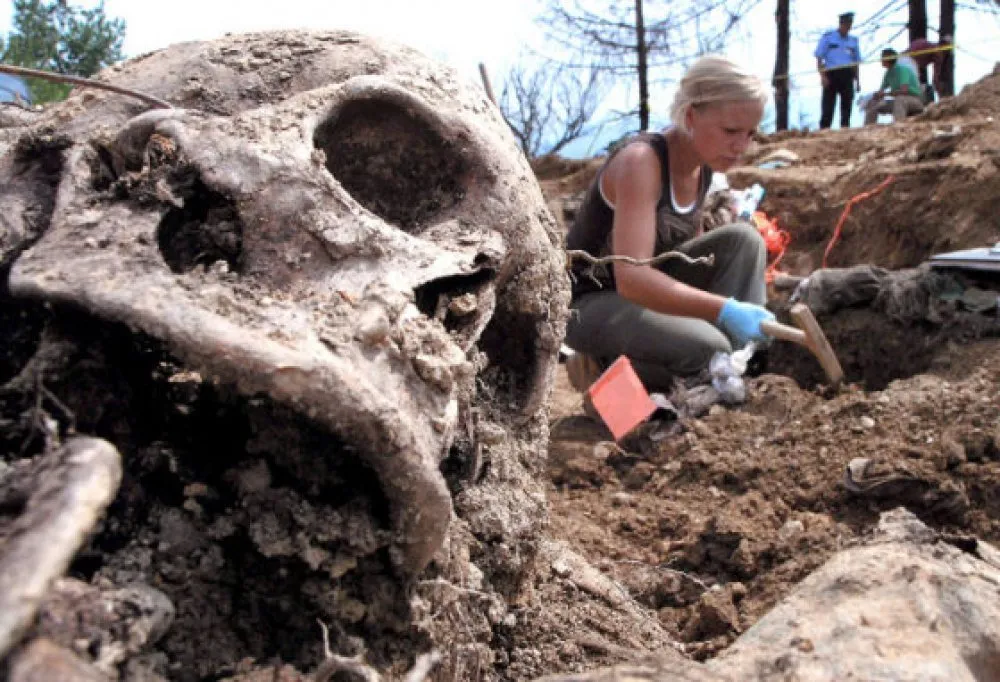In an extraordinary discovery, marine archaeologists have uncovered a shipwreck dating back to the 6th century that holds within its wooden embrace a chilling secret. This ancient vessel, found off the coast of a remote European island, was not just carrying trade goods but also strange skeletons that have provided unprecedented insights into one of history’s deadliest pandemics.

The shipwreck, identified through carbon dating and historical records, seems to have been a merchant ship traveling from the Eastern Mediterranean. What makes this find truly remarkable are the skeletons aboard, which exhibit physical traces of a disease that ravaged Europe, killing two-thirds of its population: the Plague of Justinian.

Analysis of the skeletal remains, using advanced DNA sequencing techniques, revealed the presence of Yersinia pestis, the bacterium responsible for the plague. This discovery provides tangible evidence of how the disease spread across continents, affirming historical accounts that have long described the pandemic’s devastating effects.

The Plague of Justinian, named after the Byzantine Emperor Justinian I, who also fell ill but survived, was one of the first recorded outbreaks of the bubonic plague. It decimated the Byzantine Empire and is considered one of the earliest pandemic events in European history, a “ghost” that haunted the continent with death and despair.

This shipwreck does more than just reveal the cause of this ancient catastrophe; it opens a window into the lives of those who lived through one of the darkest periods in European history. The cargo and personal belongings found with the skeletons paint a picture of daily life, trade, and travel, even in the face of such dire adversity.

The discovery has sparked a renewed interest in the study of ancient pandemics, providing researchers with invaluable data on how diseases spread and evolve. It also serves as a somber reminder of the fragility of human societies in the face of natural disasters and diseases.
As the research continues, the shipwreck and its skeletal passengers offer a haunting glimpse into the past, revealing the “ghost” that once brought Europe to its knees. This find not only enriches our understanding of history but also underscores the importance of archaeological research in uncovering truths that lie hidden beneath the waves.



